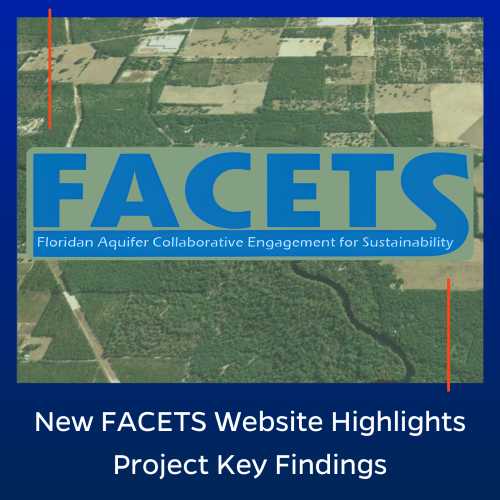New FACETS Website Highlights Project Key Findings
The UF Water Institute is thrilled to announce the launch of the newly revamped Floridan Aquifer Collaborative Engagement for Sustainability (FACETS) project webpage! This interactive site showcases the results of the seven-year project funded by the USDA NIFA Water Challenge for Agriculture Program. The project was designed to promote the economic sustainability of agriculture and silviculture in North Florida and South Georgia while protecting water resources and aquatic ecosystems. It examined the potential impacts of changes in agriculture and silviculture systems on both the regional economy and water availability and water quality in the Upper Floridan Aquifer and its connected springs and rivers.
The FACETS project brought together 60 researchers, facilitators, and students from the University of Florida, the University of Georgia, Albany State University, and Auburn University. Supported by a Project Advisory Committee with representatives from key agricultural, environmental, regulatory, non-governmental and scientific organizations, the team worked to ensure impactful research, education, and Extension activities throughout the project.
A cornerstone of the FACETS project was the Participatory Modeling Process. This brought stakeholders from diverse sectors to collaborate with the project team in model development, interpretation, and communication. The collaborative approach provided insights into the tradeoffs and synergies between the regional agricultural economy and environmental quality. It also informed decisions to enhance agricultural water security and environmental protection.
The FACETS webpage includes project goals, key findings, and a collection of publications and resources developed through the project.
We invite you to explore and share the FACETS webpage to extend the impact of these findings. Together, we will continue advancing sustainable practices that promote agricultural resilience and protect natural resources.
Visit the FACETS webpage here: FACETS Webpage.
November 20, 2024


